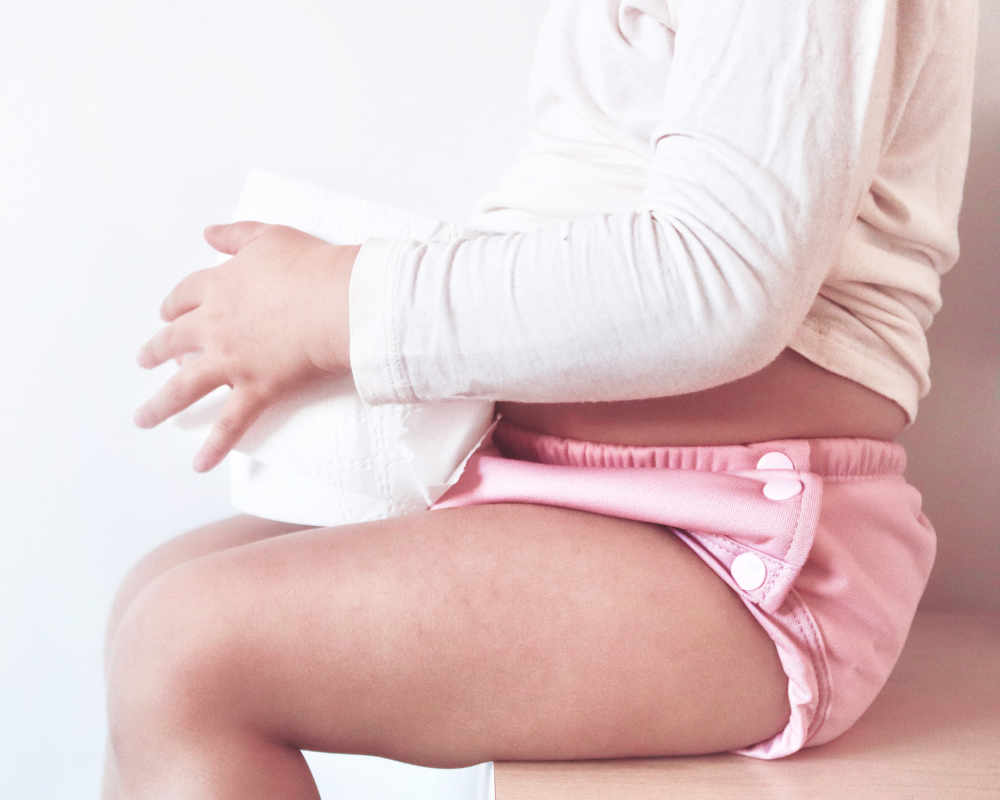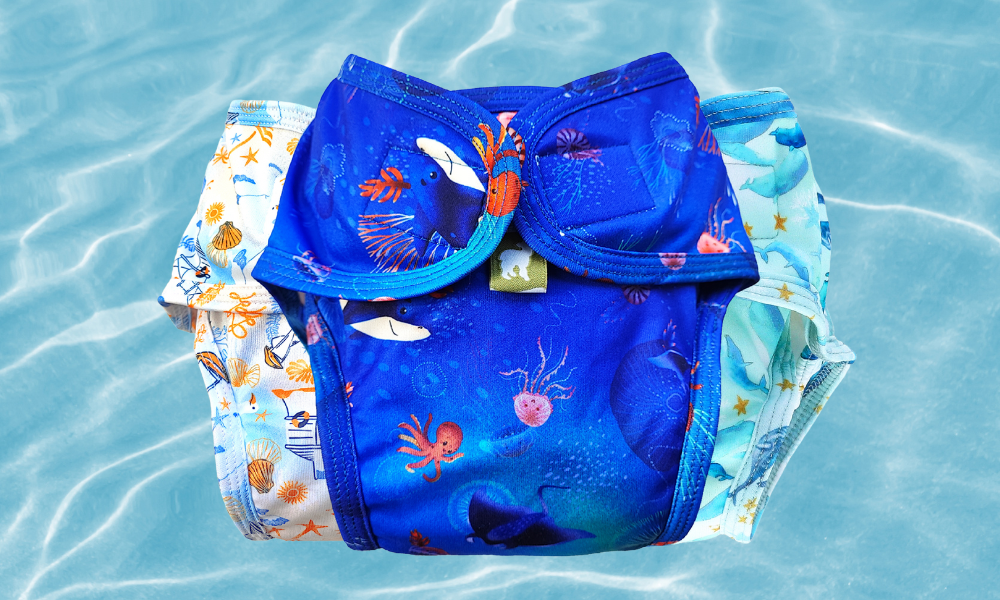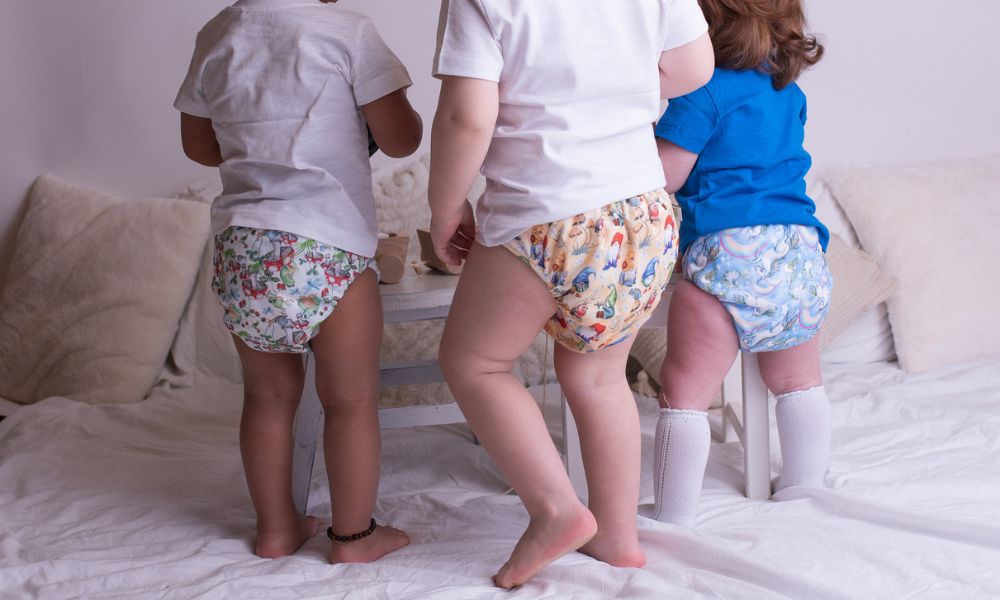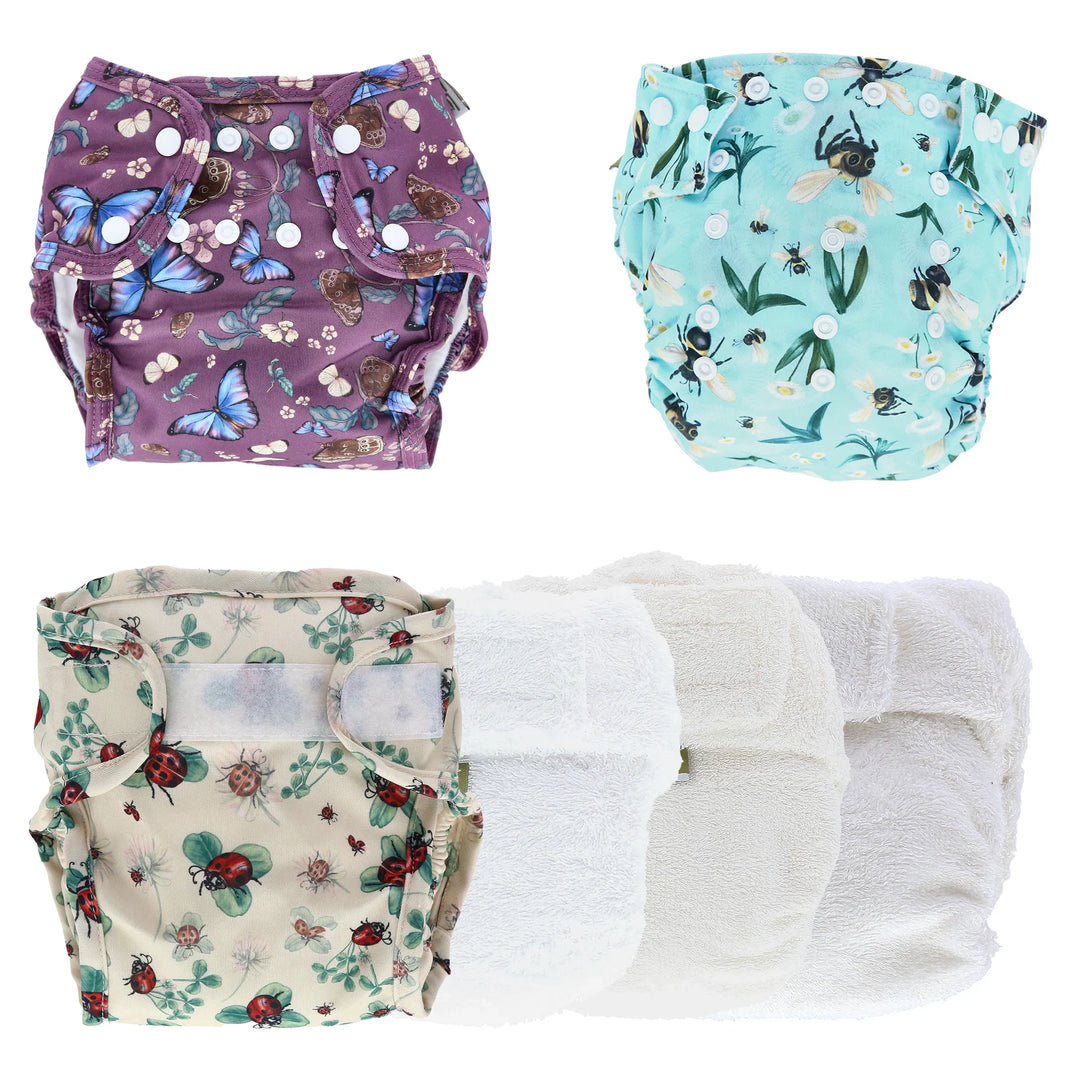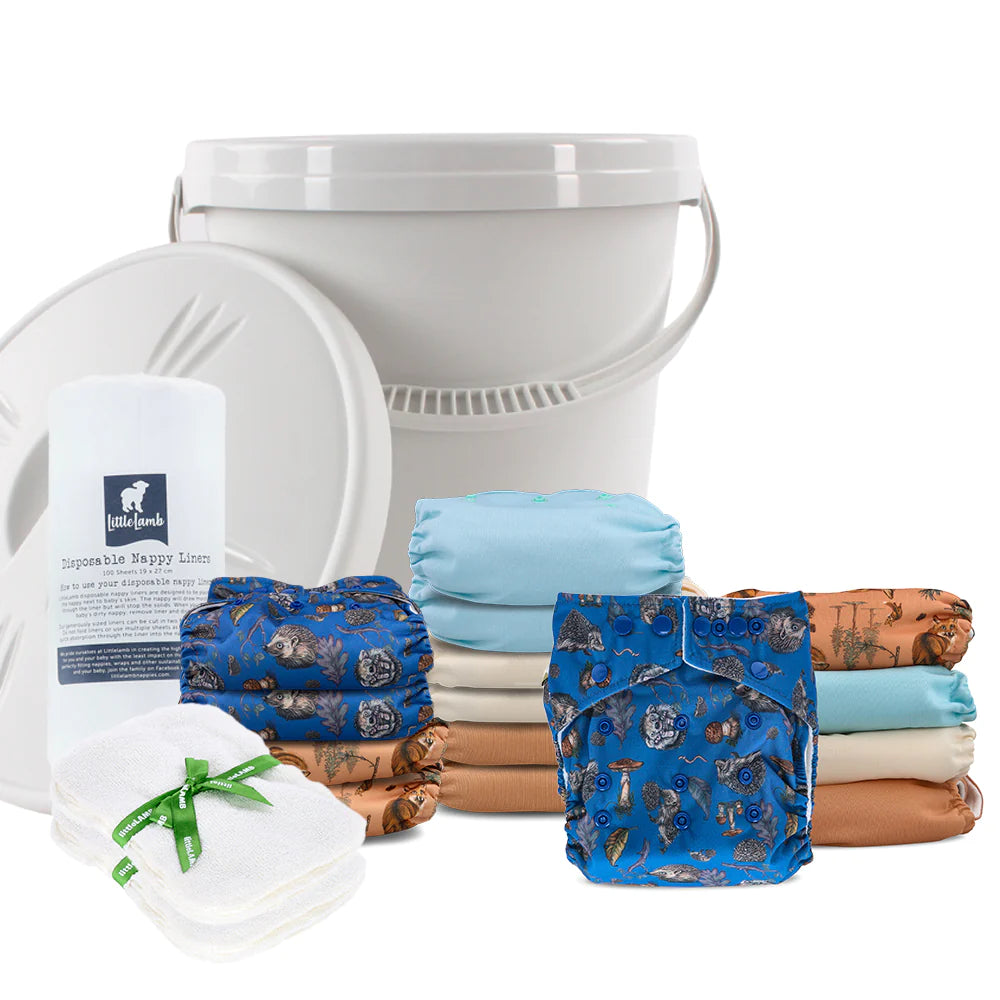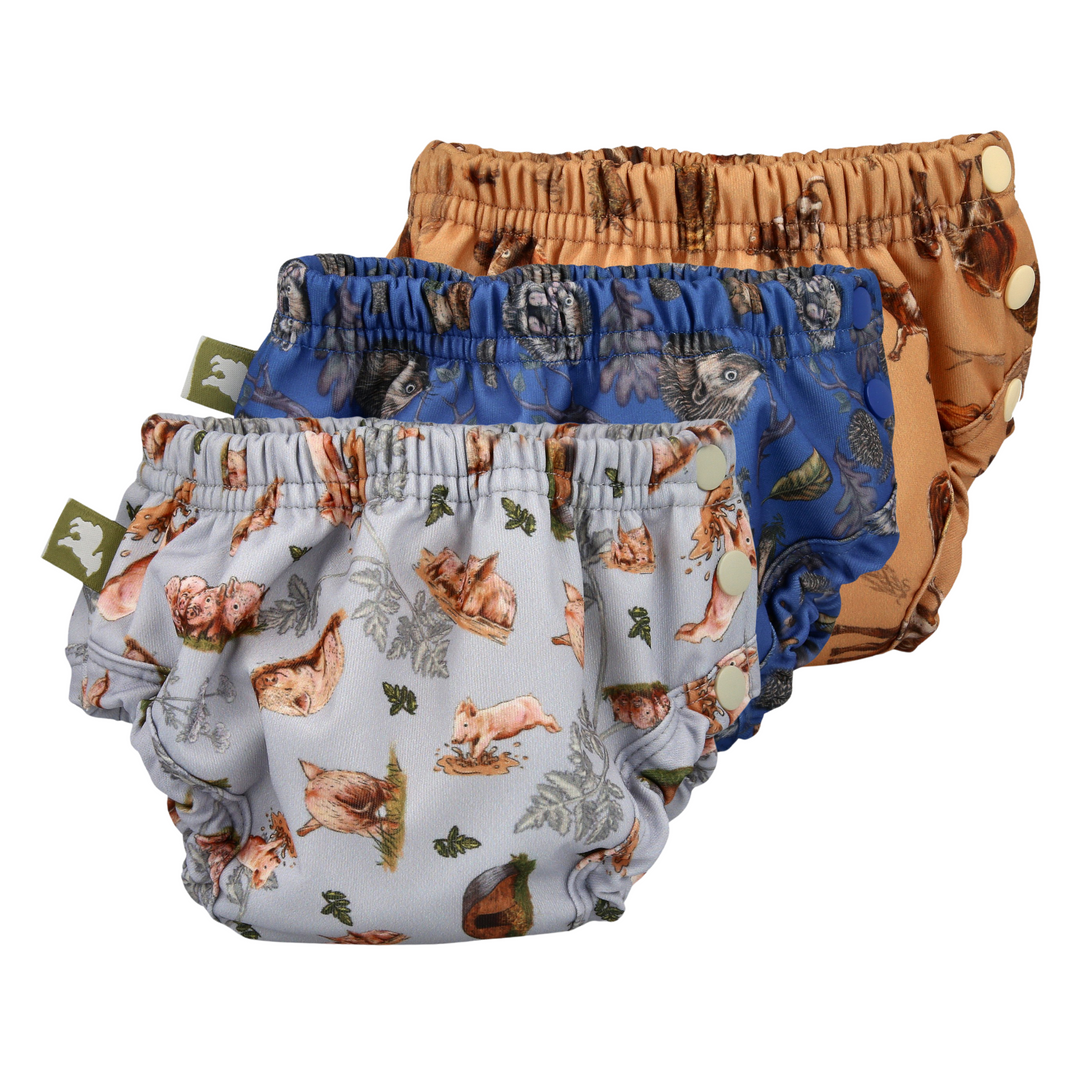There are lots of unforeseen costs when it comes to having a baby; daycare, loss of income, clothes, higher electricity because you are washing so much more frequently, the list goes on!
An often-overlooked cost is nappies, as they are similar to toilet paper - you’ll just keep grabbing a packet every time you go down the aisle at the supermarket.
On average, one baby will need about 6,500 nappy changes from birth to potty training, so reducing the amount of money you spend on nappies can really make a difference in the long run.
A quick calculation shows what the average person spends on nappies per child;
Regular disposable nappies:
6,500 regular disposable nappies from Tesco cost (at time of writing) £0.16.
£0.16 x 6,500 = £1,040
Whereas if you used reusable nappies;
Onesize Pocket nappies from us at LittleLamb (at the time of writing) £230.
Plus about £50 for extra accessories/boosters/liners etc.
Total £280
And if yiou use the same nappies on subsequent children, these children become free!
So, £280 vs £1,040 means there is definitely a financial gain, so long as you don’t get obsessed with buying more nappies, which honestly happens… Retail therapy via nappy purchases might sound foreign to you now, but it gets the best of us!
When it comes to reusable nappies, many people are off-put by the initial cost. However, we work hard to keep our bulk prices low and we’ve also partnered up with Clearpay to add access to payment plans for those of us without immediate access to the money.
Why are cloth nappies *so* expensive?
Due to their high usage, cloth nappies need to be made of durable, high-quality materials. Many reusable cloth nappy companies prefer to use natural materials so the baby’s sensitive skin is not exposed to chemicals. And many, like us, choose to use eco-materials like recycled polyester to be more gentle on the planet. We also ensure that all our products are safety tested and made in ethical working conditions. All these ‘doing good’ factors add up to a higher cost.
It is unfair to compare the price of a cloth nappy price to a disposable nappy; to me, it is like comparing a china plate with a paper one! You pay a fraction of the price for a much inferior product. Our expectations for a disposable nappy are so small; it will be used for 4 hours and then trashed whereas a cloth nappy is expected to last around 400 washes, for example, our one-size pocket nappy is expected to last at least 2.5 years!
Finally, most cloth nappy companies are family-run businesses; we are not conglomerates who can use nappies as a loss-leader, we are regular people like you!
Is it OK to use second-hand cloth nappies?
Some people are shocked to hear about the thriving second-hand market for cloth nappies - affectionately called 'pre-loved'. Cloth nappies aren't cheap, and we know some people can get a little carried away building their stash, so it's fantastic to be able to recoup some money at the end of your babies' need for them.
However, before you sell all your nappy stash, it is good to note that if you pack away your nappies and save for your next child, their nappy needs are essentially free!
"A favourite customer story that stayed with us was a lady who purchase 20 cotton nappies, used them on her 2 children, passed them on to her sister who used them on her three and then they went and sold them on eBay! The savings"
Environmentally buying second-hand is a fantastic thing to do, and it also helps families that might not be able to afford brand new cloth nappies get a decent start.
Here are some tips and tricks for buying and selling second-hand nappies;
Advice for sellers:
- Think carefully about the price you ask for them, check current rrp prices to give you a guide. People usually won't buy second-hand if they can buy a new nappy for only a few pounds more.
- Join Facebook groups and see what prices other people have sold for second-hand (not just asking actual sold price). You can also post asking for pricing recommendations.
- Don't forget to add postage and any payment fees. Also, remember to keep the tracking number or receipt in case the product gets lost in the mail - here, you'll have to reimburse the purchaser and make a claim against the carrier.
Advice for buyers:
- What condition are the nappies in? Ask for photos and a detailed description of any wear and tear. You should check the condition of PUL, elastics, Velcro and poppers.
- How many children have the nappies been used on? The more children, the less life will be left in them.
- How have they been washed? Frequently tumble dried nappies will have a lower lifespan.
- Research the price of those nappies new, and consider the cost of postage. Remember on most commercial websites, once you pass a certain threshold, shipping is free - for LittleLamb, this is currently £40.
Where to buy pre-loved nappies?
Facebook! There are so many groups...!
We recommend our LittleLamb dedicated Facebook group - "Little Lamb Cloth Nappies Love, advice and FSOT"
Final Tip - Facebook thinks you are trying to sell actual baby sheep when you post 'little lamb', so try LL or Little L*** to get approved. Most people will know the LL abbreviation.
So, that’s the financials out of the way, but we would be doing you a disservice if we didn’t mention the time costs involved with laundering the nappies. But honestly, from our experience, we know using cloth nappies will only add around 3 extra loads of laundry to your weekly schedule.
Are reusable nappies cheaper than disposable nappies in the long run?
They can be! However, if you are choosing cloth nappies to save money, you’ll have to make some conscious decisions to ensure you don’t go over budget.
Here are our tips on how to save money by using cloth nappies:
- Buy second-hand nappies
- Think about how you are going to dry the nappies. Using the tumble dryer will add energy costs. We believe the most economic way to dry nappies is outside in the sun but we know sometimes that is not possible in the UK! So we suggest investing in a wth a clothes horse and fan. Position the clothes horse in the most spacious area in your home, point the fan at the nappies and leave it on a gentle setting. The circulating air will help the nappies dry quicker. You could also invest in a dehumidifier to speed up the process.
- Buy reusable liners
- Start using reusable wet wipes! These are the easiest add on to using cloth nappies they can go in the wash with the nappies.
- Wash at 40 degrees where possible
- Use the same nappies for subsequent children
- Check your council for local cloth nappy incentives!
- Sell your nappies on the pre-loved market
Are cloth nappies better than disposable?
Yes! Cloth nappies can help your family save money, they’ll save 6,500 plastic nappies from landfills and your baby won’t have any nasty chemicals touching their delicate newborn skin. Reusable nappies are far better for your pocket, your baby and your baby’s future.
Cloth nappies are better at containing what we affectionately know call ‘blow-outs’ or ‘poo-splosions’ - think baby poo all up the back of the child… Every parent's nightmare. Cloth nappies have much stronger elastic than disposable nappies, so it is much harder for that runny poo to escape the nappy.
Which reusable nappies are the best in the UK?
Well, of course, I recommend LittleLamb as the best! Our selection of nappies is extensive and we pride ourselves on offering the best quality for the best prices!
At LittleLamb we offer great daytime and nighttime solutions; pocket nappies for daytime and then our super absorbent, incredibly reliable fitted nappies for nighttimes! Our boosters and liners are also incredibly popular with all cloth nappy users.
Also, did you know we offer a 6-week guarantee on all our kits? Learn more here!


